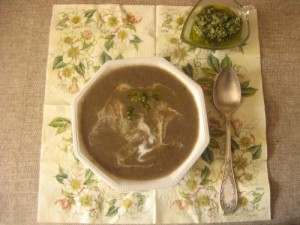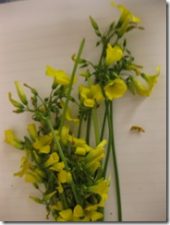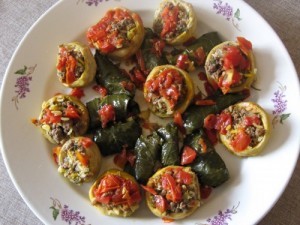 My collection of Pyrex baking pans: An explosion waiting to happen?
My collection of Pyrex baking pans: An explosion waiting to happen?
A hot Pyrex type glass baking dish can literally explode if placed on a cool surface like a sink counter top…In an illuminating article about the dangers of non-stick ceramic cooking ware, we advised readers of the risks involved in cooking with some types of ceramic cooking utensils following an exposure by a local Israeli TV program. The results of this revelation made us think about buying colorful ceramic cookware. And indeed in Israel some of this cooking ware being either taken off the market or sold at low “fire sale” prices by stores to get rid of existing stocks. What many people may not know, however, is a very serious risk involving the use of what is known as glass bake ware, sold for many years in under the brand name of Pyrex.
Studies conducted on Pyrex bake ware were published last month in the September edition of the Bulletin of the American Ceramic Society found that some of this glassware “is more susceptible than others to explosive shattering.”
Pyrex was the trade name given to this glassware by the American Corning Glass Company that originally began manufacturing this heat resistant glassware more than 80 years ago. The original Pyrex bake ware was made of a mixture known as borosilicate glass which contains at least 5% borosilicate oxide. This substance is what made the glass more resistant to extreme heat or cold; resulting in Corning claiming that it was possible to transfer a hot food dish “from oven to ice box.”
Later versions of Pyrex bake ware, however, were made of a less costly substance, soda-lime silicate, after Corning sold the Pyrex brand name back in late 1990’s. European versions of the cookware continue to use the older, and safer, borosilicate glass, however.
The above study went on to say that one of the most common dangers of the soda-lime silicate versions is removing a hot baking pan from the oven and placing it on a cool counter top – especially a wet one. From a scientific standpoint, the heat tolerance of the borosilicate glass versions is as much as three times that of the soda-lime silicate ones which can never be transferred “from oven to ice box.”
With so much adverse publicity going around involving the use of ceramic coated cookware and frying pans, many households have been resorting to cooking with iron or other types of cookware; including that of the long trusted Pyrex brand types.
Heat resistant glass baking ware is common place all over the Middle East. While much of it is made in Europe, especially in France, some does some from various origins under the Pyrex brand name made in the USA. As a result of the American Ceramic Society published study, it might be wise to check to see what substance the glass in that baking pan that you plan to purchase is actually made of. As for glass cookware already on hand, being a bit more prudent when removing a hot dish from a hot oven may prevent an explosive situation at the next family meal.
Tips for cooking safe:
To be on the safe side, read the product warnings when purchasing bakeware, and be ready for the idea that all glassware is breakable at some point. Use glassware in conventional ovens as the directions state, and be careful about placing them on ceramic or new-age stove tops. Lastly try to avoid sudden and extreme changes in temperature when can stress the glassware causing it to shatter.
A new report from CBS is that consumers should also be on the watch out for exploding glass shower doors, also prone to extreme changes in heat as you go from a hot shower to a cold one or vice versa. And this great piece by Wired explains how molten glass can ge made to be shock and heat resistant.
Read more on cooking ware and related products from ceramics:
Ceramic Cooking Pans May be Killing You With Color
Ceramic Cookware Fire Sale After TV Exposure
The Famous Potters of El Qasr
Explosion_Broken Glass_Burst: by Shutterstock



